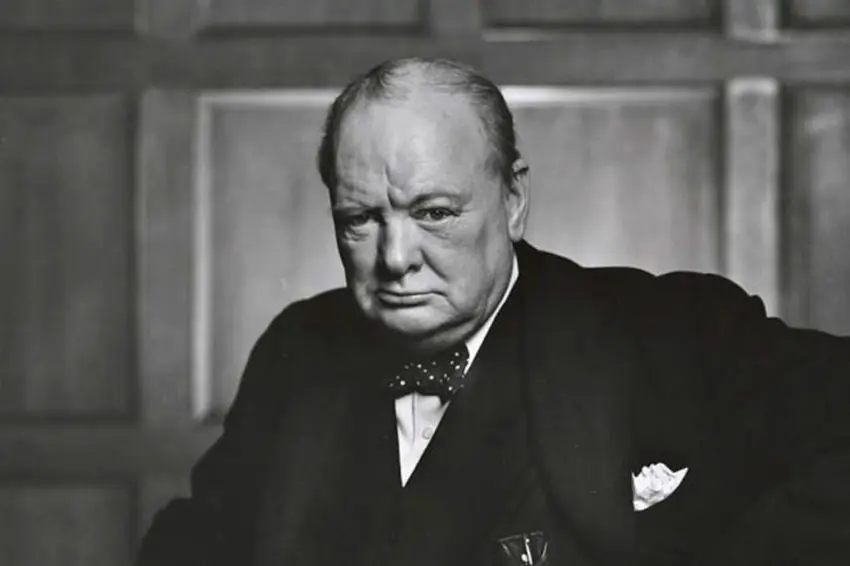Winston Churchill has been hailed as one of the greatest statesmen of all-time.
His evocative oratory and unfailing belief in King, country, and Empire galvanised the British people to repel the advances of Nazi Germany in World War II.
No-one can deny Churchill was a key figure in the Allies’ success but is he deserving of the iconic status so easily applied to him by historians?
Before we delve into some of the more controversial aspects of a man the British have come to revere, it’s worth looking at the era in which he lived. Born in 1874, Churchill was an impressionable young man at the height of the Victorian Empire.
This was a time when the British were expanding their dominion across Africa, India and the Middle East. It was an era of world domination by white Anglo Saxon Protestants, an era when the principles of eugenics, white supremacy and anti-Semitism were widely embraced and accepted in British society.
As a product of his time, Churchill was a fierce proponent of the superiority of the British people. He sincerely believed the ‘unwashed masses’ in faraway lands were hopeless heathens who would benefit and even flourish under the heavy-handed rule of their colonisers.
He viewed the indigenous peoples of Africa, India, Australia, and the Arab nations as children who needed looking after by a firm patriarchal figure in the form of a governor or viceroy. As with so many of his contemporaries, Churchill also viewed Jews, Hindis, and Muslims with suspicion.
Churchill’s worldview is perfectly encapsulated by one of the many quotes attributed to him:
” I do not admit for instance, that a great wrong has been done to the Red Indians of America or the black people of Australia. I do not admit that a wrong has been done to these people by the fact that a stronger race, a higher-grade race, a more worldly-wise race to put it that way, has come in and taken their place.”
This sort of outlook may explain why Winston Churchill made decisions that today are not only considered controversial but appalling. It’s also worth noting that Churchill was a poker player at heart. He knew he could bluff and bluster his way out of tight situations but he also knew he had to make difficult decisions based on the cards in his hand.
What are the dodgy decisions attributed to Winston Churchill? Here are a few that have shocked the world:
Brutal Persecution of Dissidents
Under Churchill’s watch, mutineers against the empire were subjected to brutal forms of incarceration and torture.
In South Africa, he was an outspoken supporter of a scorched earth policy. Boer dissidents were either shot or imprisoned, fields of arable crops were burnt to the ground and livestock were slaughtered and left to rot. Women and children were rounded up and placed in concentration camps. According to camp records, more than 26 000 died of starvation and disease.
During the Mau Mau uprisings in British Kenya, dozens of detention camps were erected in what is referred to as ‘Britain’s gulag”. Prisoners were kept in the most inhumane conditions and subjected to various forms of torture that included electric shocks, cigarette burns, severe beatings and the liberal use of fire on bare skin.
One such victim was Barack Obama’s paternal grandfather who was so brutalised by the colonial regime under Churchill he battled to walk without assistance until the end of his days.
Closer to home and during his stint as Home Secretary, Churchill called in the army to quell violent confrontations between striking Welsh coal workers and the police. His hard line in what is now referred to as the Tonypandy Riots was repeated a year later when he sent in the troops to deal with strike-related disturbances in Liverpool. This time soldiers opened fire on unarmed workers, killing two people in the process.
To this day Churchill is reviled by large swathes of the working class… not abroad but in his own country.
Refused to Intervene
Although Churchill was quick out of the blocks when it came to stamping out insurgents, he wasn’t so nimble when it came to saving lives.
In one such scenario, he was indirectly responsible for the death of three million Bengals. In 1943 southern India – which was then part of a British colony – was experiencing one of the worst famines in history. Despite pleas for assistance, Churchill refused to direct 170 000 tons of Australian wheat to the area and ordered it to be stockpiled instead.
In what is arguably a more shocking decision Churchill refused to bomb the Auschwitz railway line and concentration camp, a move that would have preserved the lives of hundreds of thousands of Jews who were yet to be transported to the camps.
His excuse? British planes could not reach their destination, a contention that turned out to be a lie as the RAF had managed to bomb a strategic target located adjacent to the camp. In his defence, Churchill did try and convince the War Office and the Americans to act… but to no avail.
Would he have made a different decision if the camp inmates were not predominantly Jewish? Many critics believe so. Was Churchill a knight in shining armour or was he a rabid racist and anti-Semite? That’s for you to decide!


